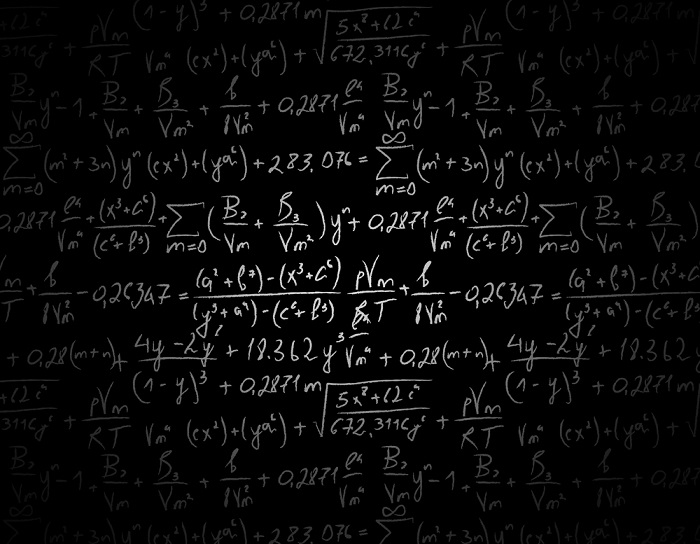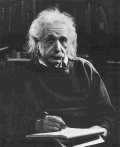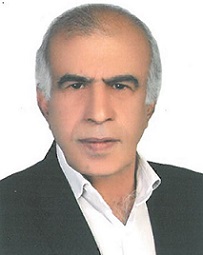|
دانشمندان از گذشته از اصول ریاضی برای شرح دادن
ویژگیهای جهان استفاده میکردهاند اما اکنون
کیهانشناسی ادعا میکند جهان خود از ریاضی ساخته
شدهاست.

به گزارش همشهری آنلاین، از پایگاه لایوساینس، مکس
تگمارک کیهانشناسی است که از دیدگاهش همهچیز در
جهان، از جمله انسان، بخشی از ساختاری ریاضیاتی
است، میگوید همه مواد از ذرات تشکیل شدهاند که
از خصوصیاتی مانند بار و چرخش برخوردارند اما این
ویژگیها کاملا ریاضیاتی هستند. فضا نیز از دیدگاه
وی ویژگیهای مختص به خود را دارد اما مانند مابقی
جهان از ساختاری مبتنی بر ریاضیات ساخته شدهاست.
تگمارک براساس کتابی که به تازگی منتشر کرده
میگوید اگر این نظریه را بپذیرید که فضا و تمامی
محتوای درون آن به خودی خود به جز خصوصیات ریاضی
از هیچ ویژگی دیگری برخوردار نیست، در این صورت
ریاضی بودن همهچیز کمتر غیرقابل تصور به نظر
خواهد آمد. وی میگوید اگر این نظریه نادرست باشد
فیزیک محکوم به فنا خواهد بود. اما اگر جهان واقعا
ریاضیات باشد هیچچیز غیرقابل درکی در آن وجود
نخواهد داشت.
این نظریه درپی مشاهداتی که از شکلها و الگوهای
بینهایت طبیعت انجام شده مطرح شدهاست،
ساختارهایی مشابه توالی فیبوناچی، مجموعهای از
اعداد که در آن هر عدد مجموع دو عدد قبلی است.
فرایند گلدهی در گیاه آرتیشو یا کنگر فرنگی همین
توالی را دنبال میکند. جهان غیر زنده نیز براساس
اصول ریاضی رفتار میکند. اگر یک توپ بیسبال را به
هوا بیاندازید، این توپ در مسیری سهمیوار حرکت
میکند و سیارهها و دیگر اجرام کیهانی نیز در
مدارهای بیضیشکل حرکت میکنند. به گفته تگمارک در
طبیعت سادگی و زیبایی وجود دارد که نقشهها و
الگوهای مبتنی بر ریاضی که برای ذهن انسان قابل
درک هستند، آنها را آشکار میکنند. یکی از عواقب
ریاضیاتی بودن طبیعت جهان این است که دانشمندان
قادر خواهند بود هرنوع مشاهده یا محاسبهای را در
فیزیک پیشبینی کنند. تگمارک میگوید این ریاضی
بود که وجود سیاره نپتون، امواج رادیویی و بوزون
هیگز با اعلام کرد.
برخی براین باورند ریاضی ابزاری است که توسط
دانشمندان برای توضیح جهان طبیعی ابداع شدهاست.
اما تگمارک اصرار دارد ساختارهای مبتنی بر
ریاضیاتی که در طبیعت وجود دارند نشاندهنده این
موضوع هستند که ریاضی تنها محدود به ذهن انسان
نیست بلکه پدیدهای جهانشمول است. از زاویهای
دیگر، برخی مغز انسان را پیچیدهترین ساختار جهان
میدانند، در حقیقت این ذهن انسان بودهاست که بار
انجام تمامی پیشرفتهای بزرگ در راستای شناخت جهان
را به دوش کشیدهاست. به گفته تگمارک روزی
دانشمندان قادر خواهند بود با استفاده از ریاضی
مفاهیمی مانند آگاهی را نیز توضیح دهند.
اما اگر مغز صرفا ریاضی باشد، این به آن معنی
خواهد بود که اراده وجود ندارد زیرا حرکات ذرات را
میتوان با کمک معادلات ریاضی محاسبه کرد؟ تگمارک
با این فرضیه مخالف است. به گفته وی اگر رایانهای
تلاش کند تا نیت انسانی را شبیهسازی کند، محاسبه
آن دستکم به همان اندازه زمان و انرژی مصرف خواهد
کرد که انجام آن زمان میبرد. به همین دلیل برخی
از افراد اراده را ناتوانی پیشبینی عمل فرد پیش
از آنکه اتفاقی رخ دهد معنی میکنند. اما این به
آن معنی نیست که انسان قدرتی ندارد، تگمارک از
سخنان خود این نتیجه را میگیرد که بشر نه تنها
قدرت درک جهان را دارد، بلکه میتواند آن را
متحول ساخته و بهبود ببخشد.
نقل از
بیگ بنگ
مرز بین ایمان و
تجربه
نامه سرگشاده به حضرت آیت الله هاشمی رفسنجانی
What's the Universe Made Of?
Math, Says Scientist
By Tanya Lewis, Staff Writer
January 30, 2014 08:50am ET

MIT cosmologist Max Tegmark believes the
universe is a mathematical structure.
Credit: Shutterstoc
BROOKLYN, N.Y. — Scientists have long used
mathematics to describe the physical properties
of the universe. But what if the universe itself
is math? That's what cosmologist Max Tegmark
believes.
In Tegmark's view, everything in the universe —
humans included — is part of a mathematical
structure. All matter is made up of particles,
which have properties such as charge and spin,
but these properties are purely mathematical, he
says. And space itself has properties such as
dimensions, but is still ultimately a
mathematical structure.
"If you accept the idea that both space itself,
and all the stuff in space, have no properties
at all except mathematical properties," then the
idea that everything is mathematical "starts to
sound a little bit less insane," Tegmark said in
a talk given Jan. 15 here at The Bell House. The
talk was based on his book "Our Mathematical
Universe: My Quest for the Ultimate Nature of
Reality" (Knopf, 2014).
"If my idea is wrong, physics is ultimately
doomed," Tegmark said. But if the universe
really is mathematics, he added, "There's
nothing we can't, in principle, understand." [7
Surprising Things About the Universe]
Nature is full of math
The idea follows the observation that nature is
full of patterns, such as the Fibonacci
sequence, a series of numbers in which each
number is the sum of the previous two numbers.
The flowering of an artichoke follows this
sequence, for example, with the distance between
each petal and the next matching the ratio of
the numbers in the sequence.
The nonliving worldalso behaves in a
mathematical way. If you throw a baseball in the
air, it follows a roughly parabolic trajectory.
Planets and other astrophysical bodies follow
elliptical orbits.
"There's an elegant simplicity and beauty in
nature revealed by mathematical patterns and
shapes, which our minds have been able to figure
out," said Tegmark, who loves math so much he
has framed pictures of famous
equations in
his living room.
One consequence of the mathematical nature of
the universe is that scientists could in theory
predict every observation or measurement in
physics. Tegmark pointed out that mathematics
predicted the existence of the planet Neptune,
radio waves and the Higgs
boson particle thought
to explain how other particles get their mass.
Some people argue that math is just a tool
invented by scientists to explain the natural
world. But Tegmark contends the mathematical
structure found in the natural world shows that
math exists in reality, not just in the human
mind.
And speaking of the human mind, could we use
math to explain the brain?
Mathematics of consciousness
Some have described the
human brain as
the most complex structure in the universe.
Indeed, the human mind has made possible all of
the great leaps in understanding our world.
Someday, Tegmark said, scientists will probably
be able to describe even consciousness using
math. (Carl Sagan is quoted as having said, "the
brain is a very big place, in a very small
space.")
"Consciousness is probably the way information
feels when it's being processed in certain, very
complicated ways," Tegmark said. He pointed out
that many great breakthroughs in physics have
involved unifying two things once thought to be
separate: energy and matter, space and time,
electricity and magnetism. He said he suspects
the mind, which is the feeling of a conscious
self, will ultimately be unified with the body,
which is a collection of moving particles.
But if the brain is just math, does that mean
free will doesn't exist, because the movements
of particles could be calculated using
equations? Not necessarily, he said.
One way to think of it is, if a computer tried
to simulate what a person will do, the
computation would take at least the same amount
of time as performing the action. So some people
have suggested defining free will as an
inability to predict what one is going to do
before the event occurs.
But that doesn't mean humans are powerless.
Tegmark concluded his talk with a call to
action: "Humans have the power not only to
understand our world, but to shape and improve
it."
Follow Tanya
Lewis on Twitter and Google+. Follow
us @livescience,Facebook & Google+.
Original article on LiveScience.
Soure: Livescience
مرز بین ایمان و تجربه
نامه
سرگشاده به حضرت آیت الله هاشمی رفسنجانی
آخرین
مقالات
1 2 3 4 5 6 7 8 9 10 11 12 13 14 15 16 17 18 19 20 21 22 23 24 25
26 27 28 29 30 31 32 33 34 35 36 37 38 39 40
|



